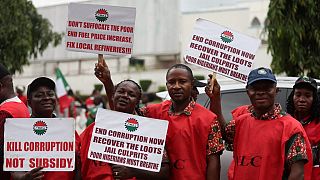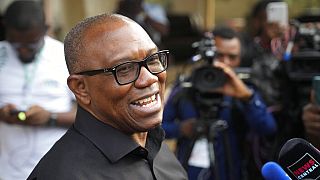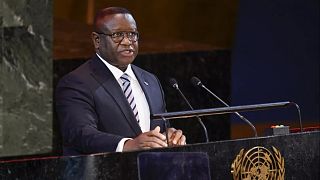Nigeria
Nigeria's two largest labour unions, the Nigeria Labour Congress (NLC) and the Trade Union Congress (TUC), have declared an indefinite nationwide strike starting Tuesday, defying a court order.
The unions are protesting against the soaring cost of living and increased fuel prices.
The main contention revolves around the government's decision to abolish a long-standing petrol subsidy aimed at maintaining low fuel prices.
Despite the government's assertion that this move is necessary for financial stability and funding social projects, the NLC and TUC are demanding a reversal of the decision.
President Bola Tinubu has been the focus of their appeals, with the unions urging him to address their concerns, including a call for a minimum monthly wage increase to at least $120 (£97), up from the current $36, citing the adverse impact of what they term as "anti-people" economic policies.
TUC President Festus Osifo stated that the strike will persist until "governments at all levels wake up to their responsibilities." This marks the unions' third strike threat since President Tinubu assumed office in May.
Despite a recent court order attempting to prevent the strike, its duration remains uncertain. Anticipated repercussions include disruptions to vital services such as hospitals, railway stations, and schools in Africa's largest economy.
The unions had briefly suspended a previous strike last month for discussions with the government, but resumed their action, asserting that the government failed to meet their demands within the stipulated one-month deadline.












Go to video
In Kenya, 90% of packaged food needs health warning label under new rules
Go to video
Cameroon’s Tourism Minister joins presidential race as Biya’s silence fuels uncertainty
Go to video
INTERPOL seizes $65M in fake drugs, arrests 769 in largest-ever global crackdown
Go to video
Uganda's Museveni breaks African silence on Israel-Iran war
Go to video
Over 40 killed in attack on Sudanese hospital: WHO Chief condemns “Appalling” strike
Go to video
Angola’s Lourenço tells U.S : shift from aid to investment